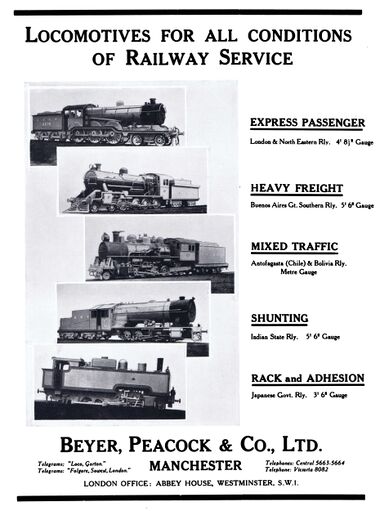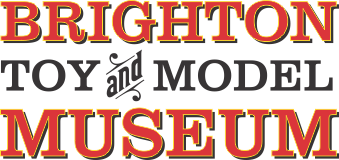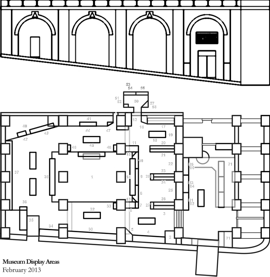Category:Beyer Peacock and Company Ltd
1931 Beyer Peacock "BP" logo [image info]
Beyer Peacock & Co Ltd paper label [image info]
1931: Advert, "Locomotives for all conditions of Railway Service", "Express Passenger / Heavy Freight / Mixed Traffic / Shunting / Rack and Adhesion" [image info]
1931: The Beyer-Garratt Quarterly Review, Volume 5 Number 2, April 1931: "Buenos Aires Great Southern Railway Oil-Burning Express Locomotive", at Mar Del Plata Sud station, Argentina [image info]
Beyer, Peacock and Company Ltd. were a Manchester-based steam locomotive company specialising in exports (since the large British railway companies had their own in-house locomotive works), and now best-remembered for their production of Beyer-Garratt articulated locomotives, or "Garratts", which they produced in a wide range of gauges and sold all over the world. The company was founded in 1854 as a partnership, and gained "limited liability" status in 1902.
As a specialist locomotive works, Beyer Peacock prided themselves in their metallurgical research and facilities (including their own on-site steel production facilities). However, as a company whose main business was the production of steam locomotives, they had obvious problems transitioning into a post-war world in which diesel and electric traction was rapidly taking over, and the company closed in 1966.
Company History
Beyer-Peacock was created in 1854 by three men, Charles Beyer, Richard Peacock and Henry Robertson.
Founders:
- Charles Beyer (1813-1876)
- German-born Charles Frederick Beyer worked his way up from very humble beginnings via Dresden Polytechnic to become Chief Engineer at Sharp Roberts building locomotives, based on obvious talent. He'd originally visited England with the help of a grant to allow him to write a report on textile machinery, but came back and got a job at the Sharp Roberts drawing office, where respect for his talents led to his promotion. Unhappiness at Sharp Roberts then prompted him to start the new locomotive company with Richard Peacock, and his contacts and reputation meant that the company already had orders before it even had manufacturing facilities.
- Richard Peacock (1820-1989)
- Richard Peacock was Locomotive Superintendent at the Manchester and Sheffield Railway, having apprenticed at Fenton, Murray & Jackson, been locomotive superintendent at the Leeds and Selby Railway, worked at the Great Western Railway, and then became locomotive superintendent at the Sheffield, Ashton under Lyne and Manchester Railway.
- Peacock and Beyer had been two of the co-founders of the Institution of Mechanical Engineers (IME) in 1847, along with George Stephenson and others. The founding of the IME is supposed to have been inspired by a sense of disgust by loco engineers that when Stephenson had recently applied to be a member of the Institution of Civil Engineers, he'd been told to write an application essay explaining why he thought his engineering capabilities entitled him to be a member (unsurprisingly, he declined).
- Henry Robertson (1816 - 1888)
- Henry Robertson's background was more in the building of railways than railway locomotives, and his main input into the company was financial. Robertson had worked as an engineer on a series of viaducts and awkward pieces of line, including the famous stretch of track at Shap Fell.
Achievements
Peacock was responsible for designing the modular layout of the new works and foundry at Gorton, Manchester, alongside the works that he'd previously designed for the Sheffield, Ashton under Lyne and Manchester Railway, on what had previously been a greenfield site. The area now seems to have been redeveloped for housing, but has roads named Beyer Close, Peacock Close, and Garratt Way.
- Literature
- As a company whose customers were sometimes literally on the other side of the planet, Beyer-Peacock invested heavily in catalogues and literature, and even produced The Beyer Peacock Quarterly Review, filled with developments in railway technologies and metallurgy that would hopefully be of interest to railway engineers around the world trying to keep up to date with the latest developments (and who might have an influence on their employers' buying decisions).
- Metropolitan "A Class"
- Selling mostly to the foreign market, one of the company's earliest distinctive engineering successes was the design and building of the Metropolitan Railway A Class tank locomotives for the new Metropolitan Railway in around ~1864. These locomotives were to be used underground, which meant that to protect passengers from exhaust steam, the locomotives had to be fitted with special steam-condensing pipes (the Metropolitan later found it more practical to move over to using electrically-powered locomotives).
- Garratt locomotives
- Contact with Herbert William Garratt resulted in Garratt developing his ideas on railway articulation into a patented design for a three-section articulated railway locomotive, with a central suspended boiler and cab supplying steam to a pair of flanking steam-powered bogie drive units.
See also:
External links
Subcategories
This category has only the following subcategory.
G
Pages in category ‘Beyer Peacock and Company Ltd’
This category contains only the following page.
Media in category ‘Beyer Peacock and Company Ltd’
The following 16 files are in this category, out of 16 total.
- Beyer Peacock loco being loaded at Liverpool Docks (BPQR 1931-01).jpg 2,718 × 2,179; 2.17 MB
- Beyer Peacock logo (1931).jpg 1,037 × 671; 82 KB
- Beyer-Garratt articulated locomotive LMS 4994 (RWW 1935).jpg 3,000 × 2,021; 2.74 MB
- Beyer-Garratt Articulated Locomotives (BGAL 1947-12).jpg 1,602 × 2,200; 1.92 MB
- Beyer-Garratt locomotive, Ottoman Railway (BPQR 1931-01).jpg 2,000 × 1,159; 1.39 MB
- Beyer-Garratt Locomotives Articulees, cover.jpg 2,348 × 3,000; 5.5 MB
- Beyer-Garratt Quarterly Review, cover (BPQR 1931-01).jpg 1,499 × 2,000; 2.09 MB
- Beyer-Garratt Quarterly Review, cover (BPQR 1931-04).jpg 1,506 × 2,000; 2.06 MB
- Label, Beyer Peacock and Co Ltd (BGAL 1947-12).jpg 1,641 × 2,200; 2.87 MB
- LMS 4973, Thirty Beyer-Garrats for the LMS, JW Roberts (BPQR 1931-01).jpg 1,837 × 2,500; 1.16 MB
- LMS 4986, advert, Beyer Peacock Patent Self-Trimming Coal Bunker (BPQR 1931-01).jpg 2,246 × 3,000; 1.9 MB
- LMS Beyer-Garratt recoaling (MM 1937-10).jpg 2,202 × 2,290; 2.44 MB
- Locomotives By Beyer Peacock, front cover.jpg 1,600 × 1,223; 1.41 MB
- Locomotives for All Conditions, Beyer-Peacock (BPQR 1931-01).jpg 1,858 × 2,500; 1.66 MB
- Port of Liverpool, Mersey Docks and Harbour, Beyer Peacock (BPQR 1931-01).jpg 1,651 × 2,200; 1.23 MB
- Thomas Bolton, Beyer Garratt locomotive (BPQR 1931-01).jpg 2,000 × 1,357; 1.21 MB
























